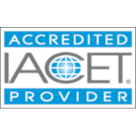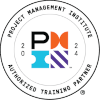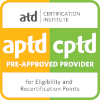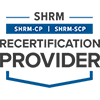Product Details
Topics Covered
- Types of teams
- Tuckman model
- Project life cycle
- Project boundaries
- Stakeholders
- Sources of power
- Authority
- Leadership roles
- Human resource planning
- Meeting management
- Team-building activities
- Reflective listening
- Virtual teams
- Decision making
- Conflict resolution
- Team communication
- Communications management plan
- Change requests
- Team problems
- Disruptive team members
- Project schedule
- Scope creep and feature creep
- Work breakdown structure
Key Features
- Mobile-friendly
- Audio-enabled
- Badge and credit-awarding
- Real-world case studies
- Fully accessible
- Games & Flashcards
- Expert-supported
- Video content
Course Preview
Course Description
Learning Outcomes
- Define a team and identify six common types of teams
- Explain Bruce Tuckman's model of group development
- Describe how the project life cycle is relevant to team issues
- List the three sources of power for project management team leaders
- Describe ways to manage stakeholder expectations
- Explain different types of team building activities
- Define reflective listening
- Identify the challenges of virtual teams and how they relate to the project management team leader's roles
- Compare and contrast voting and consensus as methods for decision-making
- More effectively identify and resolve team problems
- Explain the different characteristics of effective and open team communication
- Identify the best practices for using e-mail and telephone among team members
- Identify several common team problems and apply methods for resolving these issues
Notes
This course has an "Ask the Expert" feature, which submits your questions directly to an expert in the field you are studying. Questions are answered as quickly as possible and usually within 24 hours.
As an Accredited Provider, MindEdge offers for its learning events that comply with the Continuing Education and Training Standard.
Learners must achieve an average test score of at least 70% to meet the minimum successful completion requirement and qualify to receive credit. Learners will have three attempts at all graded assessments.
Project Management Institute, , the Registered Education Provider logo, Project Management Professional, , Project Management Body of Knowledge, , Agile Certified Practitioner, -, Risk Management Professional, -, the Talent Triangle, and the Talent Triangle logo are marks of the Project Management Institute, Inc.
Information in this course has been taken from A Guide to the Project Management Body of Knowledge, (® Guide) - Sixth Edition, Project Management Institute Inc., 2017.
The following list outlines the you will earn for completing this course, based on the certifications you have.
CAPM®/PMP®/PgMP® |
|---|
| Ways of Working PDUs: 4 |
| Power Skills PDUs: 13 |
| Business Acumen PDUs: 1 |
| TOTAL: 18 |
PfMP® |
|---|
| Ways of Working PDUs: 0 |
| Power Skills PDUs: 10 |
| Business Acumen PDUs: 1 |
| TOTAL: 11 |
PMI-ACP® |
|---|
| Ways of Working PDUs: 2 |
| Power Skills PDUs: 10 |
| Business Acumen PDUs: 1 |
| TOTAL: 13 |
PMI-PBA® |
|---|
| Ways of Working PDUs: 0 |
| Power Skills PDUs: 10 |
| Business Acumen PDUs: 1 |
| TOTAL: 11 |
PMI-RMP® |
|---|
| Ways of Working PDUs: 0 |
| Power Skills PDUs: 10 |
| Business Acumen PDUs: 1 |
| TOTAL: 11 |
PMI-SP® |
|---|
| Ways of Working PDUs: 0 |
| Power Skills PDUs: 10 |
| Business Acumen PDUs: 1 |
| TOTAL: 11 |




